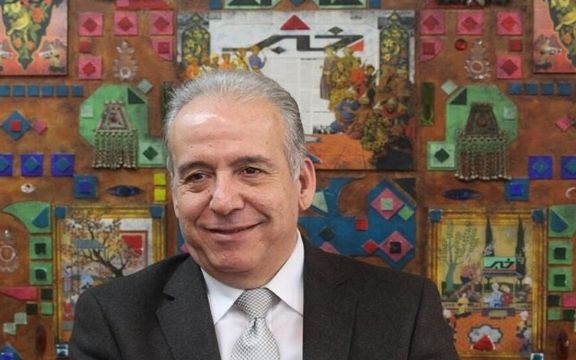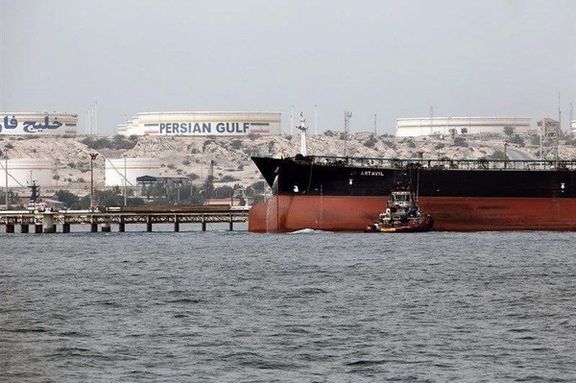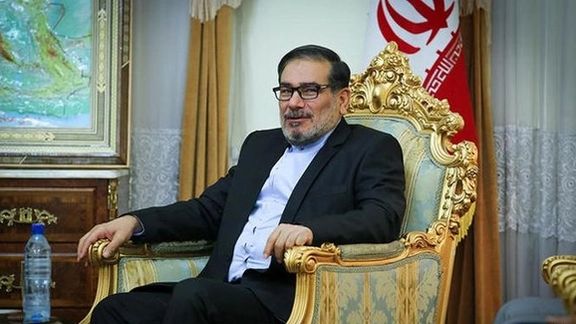Iran, South Korea Start Consultations Over Frozen Funds

Iran and South Korea have started working-level consultations on ways to resolve yearslong disputes over Tehran's assets frozen in Seoul under US sanctions.

Iran and South Korea have started working-level consultations on ways to resolve yearslong disputes over Tehran's assets frozen in Seoul under US sanctions.
The South Korean foreign ministry said on Wednesday that Iranian bankers and officials from the state-run oil company and the petroleum ministry have traveled to Seoul to meet with South Korean government and company officials.
During the two-day meetings that started on Tuesday, the two sides discussed detailed payment options and the possibility of resuming oil trade if the US grants sanctions relief.
As the Vienna talks to revive the 2015 nuclear deal seem to be in the final stages, Iran appears to be taking steps for its official return to the international oil market after more than three years.
According to Citigroup, a possible agreement would allow the return of 500,000 barrels a day of oil to international markets in April to May, eventually rising to 1.3 million barrels by year-end.
Iran, which sits on the world's fourth-largest oil reserves, had been a key oil supplier to South Korea, and a main importer of goods such as industrial equipment, household appliances and vehicle parts.
Seoul stopped purchase of Iranian oil since in May 2019 due to sanctions that ban the Islamic republic's oil exports.
Two South Korea banks hold $7-9 billion of Iranian money, owed for oil imports, but the funds are locked under US sanctions, which were reimposed after former President Donald Trump in 2018 withdrew from the deal.

Over a month after Richard Nephew left the US negotiating team in Vienna, he has published a series of tweets to elaborate on the reasons behind his move.
Nephew, who is known as the architect of Washington’s sanctions on Iran, was serving as the deputy to US especial envoy to Iran Robert Malley until December 6, when he left the US negotiating team along with two others, over what was reported as differences with Malley at the time.
In a series of tweets on Tuesday, Nephew said he stepped down from his post “due to a sincere difference of opinion concerning policy”, adding that he no longer serves in the State Department since last week and intends to return to academia.
“Although my views and record have been and continue to be mischaracterized by quite a few people, I do not intend to convey any further details at this time or in public, given the ongoing nature of discussions in Vienna”, he added.
Advocating a tougher posture, Nephew, along with two other US negotiators, left the team because the Biden administration failed to achieve a more assertive approach in the talks, the Wall Street Journal reported.
Nephew, who is a non-resident Senior Fellow at the Brookings Institution, published a book about the sanctions in 2017, titled The Art of Sanctions: A View from the Field.

The Chairman of the Iran-China Chamber of Commerce has said that Iran had “imported goods in return for all the oil that we have sold China.”
Majid-Reza Hariri told Mehr news agency in an interview published Monday that China owes no money to Iran for oil imports but does hold Iranian assets.
Hariri argued there had been confusion over $21 billion in Iranian assets that some reports have suggested are in China due to Chinese fears of punitive United States action against anyone buying Iranian oil or interacting with Iran’s financial system.
The business leader said that Iranian money in China consisted of Iran's reserves – cash, bonds, and stocks − that had been transferred to China years earlier in fear of confiscation.
"After 2007 there was a possibility of confiscation of Iran's currency reserves in international banks, particularly European banks, because of legal suits brought against Iran by some European countries or the United States," Hariri explained.
Iran is known to have moved hard currency reserves and bonds to China from banks in Britain, Germany, France and Switzerland to protect them from being confiscated. Washington this week announced it will seize $7 billon of Afghan reserves held in the US.
Hariri said India, like China, had exported goods to Iran as an alternative to dollar payments. These, he pointed out, had included medicine and pharmaceutical ingredients. But other countries, he said, including South Korea − where over $7 billion of Iranian assets are frozen in fear of US action − and Japan had refused payment in kind.
With the administration of President Joe Biden continuing ‘maximum pressure’ sanctions, Washington said in January it would waive any threat of sanctions on South Korea only with “everything” agreed in Vienna on reviving the JCPOA, where talks are reportedly in their final stages..
Billions of dollars of Iranian money is frozen abroad in fear of US sanctions, including in South Korea, Japan, China, Europe, India, and Iraq. The semi-official Iranian Students News Agency (ISNA) estimated in November the total at $50 billion, with $8 billion in South Korea, $3 billion in Japan, and $6 billion in Iraq.
Some countries such as Iraq to which Iran exports electricity and gas but not oil, freeze the money so the volume of frozen money is growing in their banks. Iraq now owes Iran around $7 billion for gas and electricity to Iran.
Other countries such as South Korea, Japan, and India no longer import crude oil from Iran so the assets frozen in their banks date back to before full US oil sanctions went into effect in May 2019, when Washington offered eight countries waivers to import limited quantities of Iranian oil.
China continued buying oil from Iran even after the US imposed full sanctions. The volume was less than 200,000 per day from May 2019 until late 2020, when it increased reaching to more than 500,000 in 2021 and even more by December-January.
The Biden Administration reportedly does not attempt to vigorously enforce the sanctions, as Chinese importers believe the risk of violating the sanctions are relatively low.

More reports from industry sources confirm that Iran’s oil exports have risen despite US sanctions, as each side tries to build leverage in nuclear talks.
Reuters reported on February 10 that in the past two months daily shipments have surpassed one million barrels a day, the highest since May 2019, when the Trump administration cancelled waivers allowing eight countries to import limited quantities of Iranian oil.
Between May 2019 and late 2020, Iran’s clandestine oil exports hovered around 200,000 bpd, or 10 percent of its sales before Donald Trump withdrew from the Iran nuclear agreement, JCPOA, and imposed sanctions.
However, around the time of US presidential elections in the fall of 2020, reports emerged that Iran had increased shipments to more than half a million barrels per day.
This coincided with the time when candidate Joe Biden announced his decision to reverse Trump’s policy of ‘maximum pressure’ against Iran and start negotiations to revive the JCPOA.
The latest news about higher exports, reported by Reuters quoting industry sources, coincide with the most critical phase of indirect nuclear talks the Biden Administration started with Iran more than 10 months ago. The talks held in Vienna involve all the signatories of the JCPOA, including China that is widely believed to be the biggest customer of Iran’s illicit exports.
The Chinese government that mostly abided by the sanctions, increasingly shows defiance to the Biden Administration. A spokesman responded to questions about its oil imports by Reuters, implicitly confirming and challenging the sanctions.
The "international community, including China, has been conducting normal cooperation with Iran under the global legal framework, which are both reasonable and legitimate. They deserve respect and safeguard," the spokesperson's office of China's Foreign Ministry said.
Tehran clings to these sort positions by China and Russia in order to demand more in Vienna, and Iranian hardliners tell domestic audiences that Tehran is in a strong position and does need to compromise.
Saeed Jalili a former nuclear negotiator and an opponent of the JCPOA tweeted on February 8, before the latest reports, “They were saying that Iran’s oil exports should reach zero, while after three years we are selling 1.2 million barrels pd…and this volume is increasing.”
This is a sign of how more oil exports strengthen the hand of hardliners who oppose any compromise with the United States and push for expansion of the nuclear program.
In another tweet, Jalili posted a video of a speech to supporters of the Iranian regime, in which he says the US policy of pressuring Iran has failed and uses a clip from the State Department spokesperson, Ned Price declaring the sanctions policy as an utter failure, to prove to the public that there is no fear and Iran should stand tall.
American proponents of a tough policy toward Iran accuse the administration of abandoning sanctions enforcement amid nuclear talks and allowing Iran to increase oil exports, which could harm their own leverage in Vienna.

Ali Shamkhani, Iran's national security chief has tweeted that US sanctions should be lifted for all economic sectors, as nuclear talks resume in Vienna.
“Economic & technological capacities of the country have an integrated structure & lifting of sanctions should be same for all sectors,” Shamkhani tweeted on Tuesday.
Iran’s security chief did not explain what he meant by all economic sectors, but it could be hint to some sort of United States' policy not to lift all sanctions as it tries to revive the 2015 nuclear agreement, known as JCPOA.
The Biden Administration has indicated it is willing to lift nuclear-related sanction imposed after former president Donald Trump withdrew for the agreement in 2018, but there other sanctions related to human rights or banking and export violations.
Shamkhani also wrote, “Previous experience has shown that without effective lifting of sanctions, sustainable economic benefits from JCPOA are like an illusion.”
When the 2015 nuclear agreement was concluded, all nuclear sanctions imposed by the UN Security Council, the United States and European countries were lifted.
Hardliners at the helm of Iran’s government have been often making contradictory remarks regarding the impact of sanctions. At the same time when they claim Iran has defeated US ‘maximum pressure’ they also call sanctions “cruel” punishment and blame shortcomings on restrictions imposed by the United States.

Iran has been able to appropriate 31 percent more foreign currency for imports in the past 10 months amid sanctions, the chief of the central bank said Sunday .
Ali Salehabadi, chairman of the Central Bank of Iran (CBI) told local television that from March 2021 the government has been able to provide $48.6 billion for imports amid US sanctions on the country’s oil exports and international banking. This amount from March 2020 to March 2021 was $37 billion, Salehabadi said.
Iran has boosted illicit oil exports since late 2020, although the exact quantity of shipments and destinations remain a state secret because of the risk of US retaliation against third parties. Some estimates say exports have exceeded 700,000 barrels per day compared with 200,000 in 2019-2020 when the United States declared full sanctions.
President Joe Biden’s administration that decided to change Donald Trump’s decision of leaving the 2015 nuclear agreement with Iran, entered negotiations last April to restore the deal. Reports say that the administration has not strongly enforced the sanctions, allowing Iran to boost crude sales.
The central bank chief expressed satisfaction with the “reasonable” level of oil and other exports in recent months. Iran’s battered currency that fell sharply in December has recouped more than 10 percent of its losses since mid-January.